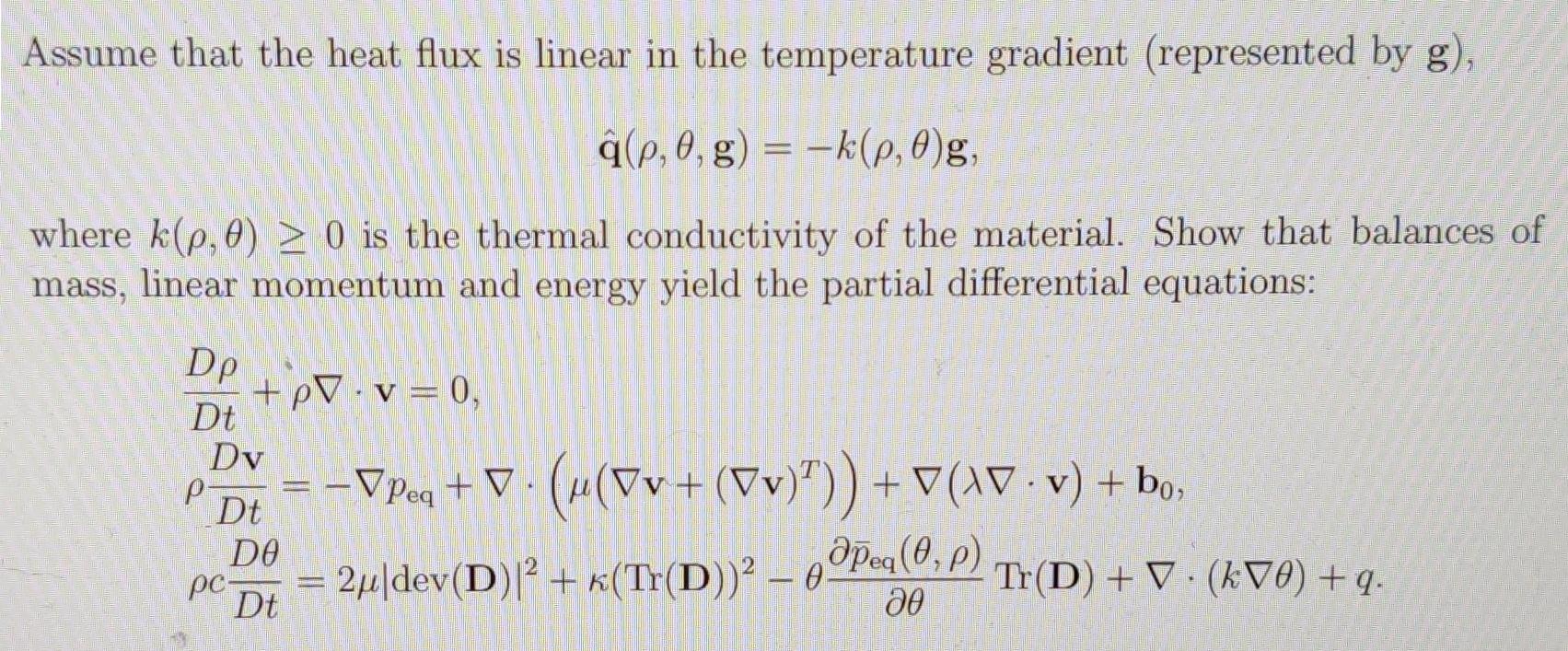Question
Assume that the heat flux is linear in the temperature gradient (represented by g), (p, 0, g) = k(p,0)g, where k(p, 0) 0 is

Assume that the heat flux is linear in the temperature gradient (represented by g), (p, 0, g) = k(p,0)g, where k(p, 0) 0 is the thermal conductivity of the material. Show that balances of mass, linear momentum and energy yield the partial differential equations: Dp Dt +pV v=0. Dv Dt De Dt pc- -Peq + ((Vv + (Vv))) + V(AV v) + bo, ) 2|dev(D)| + k(Tr(D)) - Peq (0, p) Tr(D) + V (kV0) + q. 20 = 0
Step by Step Solution
3.41 Rating (164 Votes )
There are 3 Steps involved in it
Step: 1
Starting from the balance equations Mass balance t v 0 Momentum balance vt vv ...
Get Instant Access to Expert-Tailored Solutions
See step-by-step solutions with expert insights and AI powered tools for academic success
Step: 2

Step: 3

Ace Your Homework with AI
Get the answers you need in no time with our AI-driven, step-by-step assistance
Get StartedRecommended Textbook for
Fundamentals of Heat and Mass Transfer
Authors: Incropera, Dewitt, Bergman, Lavine
6th Edition
978-0470055540, 471457280, 470881453, 470055545, 978-0470881453, 978-0471457282
Students also viewed these Management Leadership questions
Question
Answered: 1 week ago
Question
Answered: 1 week ago
Question
Answered: 1 week ago
Question
Answered: 1 week ago
Question
Answered: 1 week ago
Question
Answered: 1 week ago
Question
Answered: 1 week ago
Question
Answered: 1 week ago
Question
Answered: 1 week ago
Question
Answered: 1 week ago
Question
Answered: 1 week ago
Question
Answered: 1 week ago
Question
Answered: 1 week ago
Question
Answered: 1 week ago
Question
Answered: 1 week ago
Question
Answered: 1 week ago
Question
Answered: 1 week ago
Question
Answered: 1 week ago
Question
Answered: 1 week ago
Question
Answered: 1 week ago
Question
Answered: 1 week ago
View Answer in SolutionInn App



